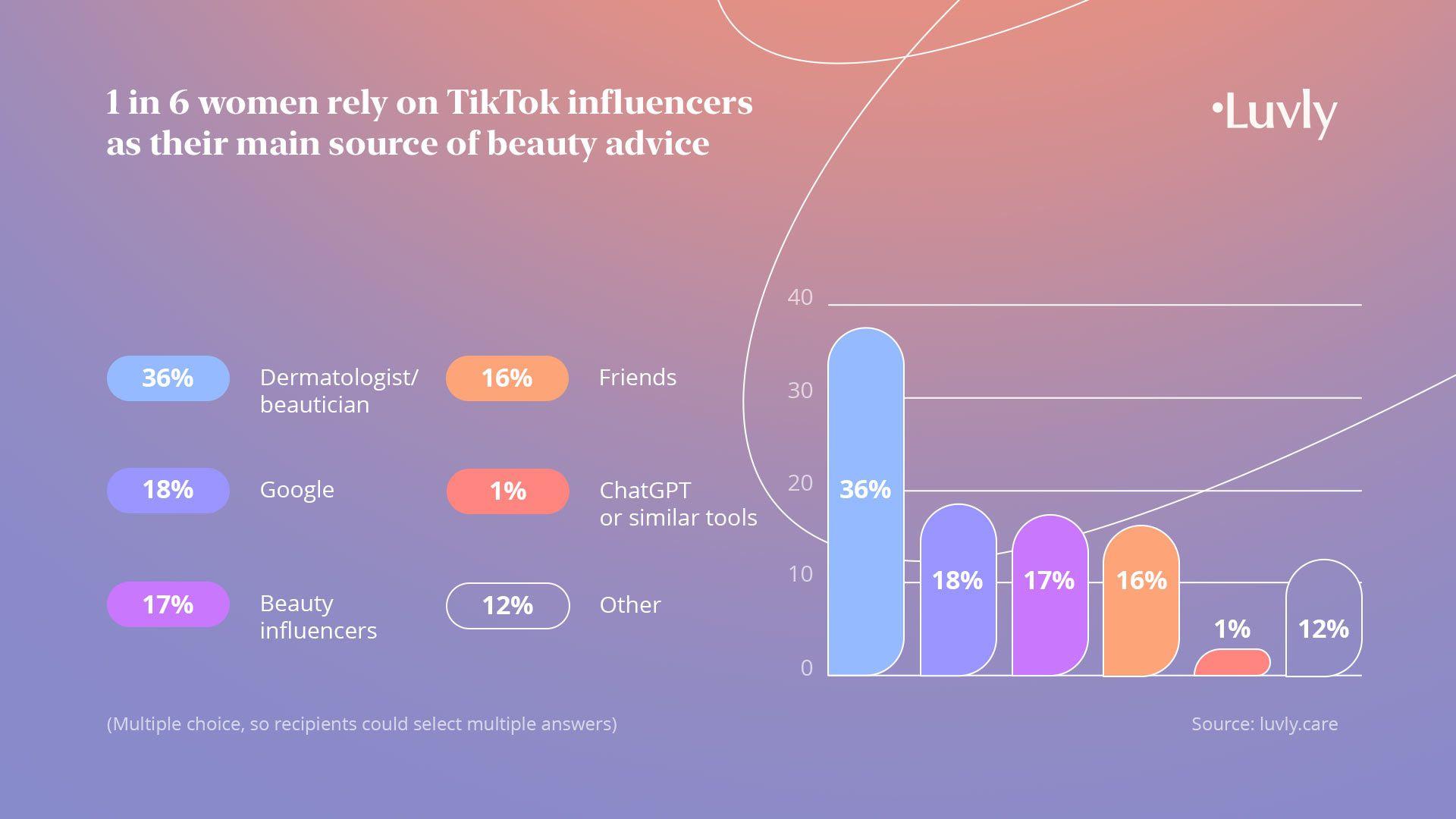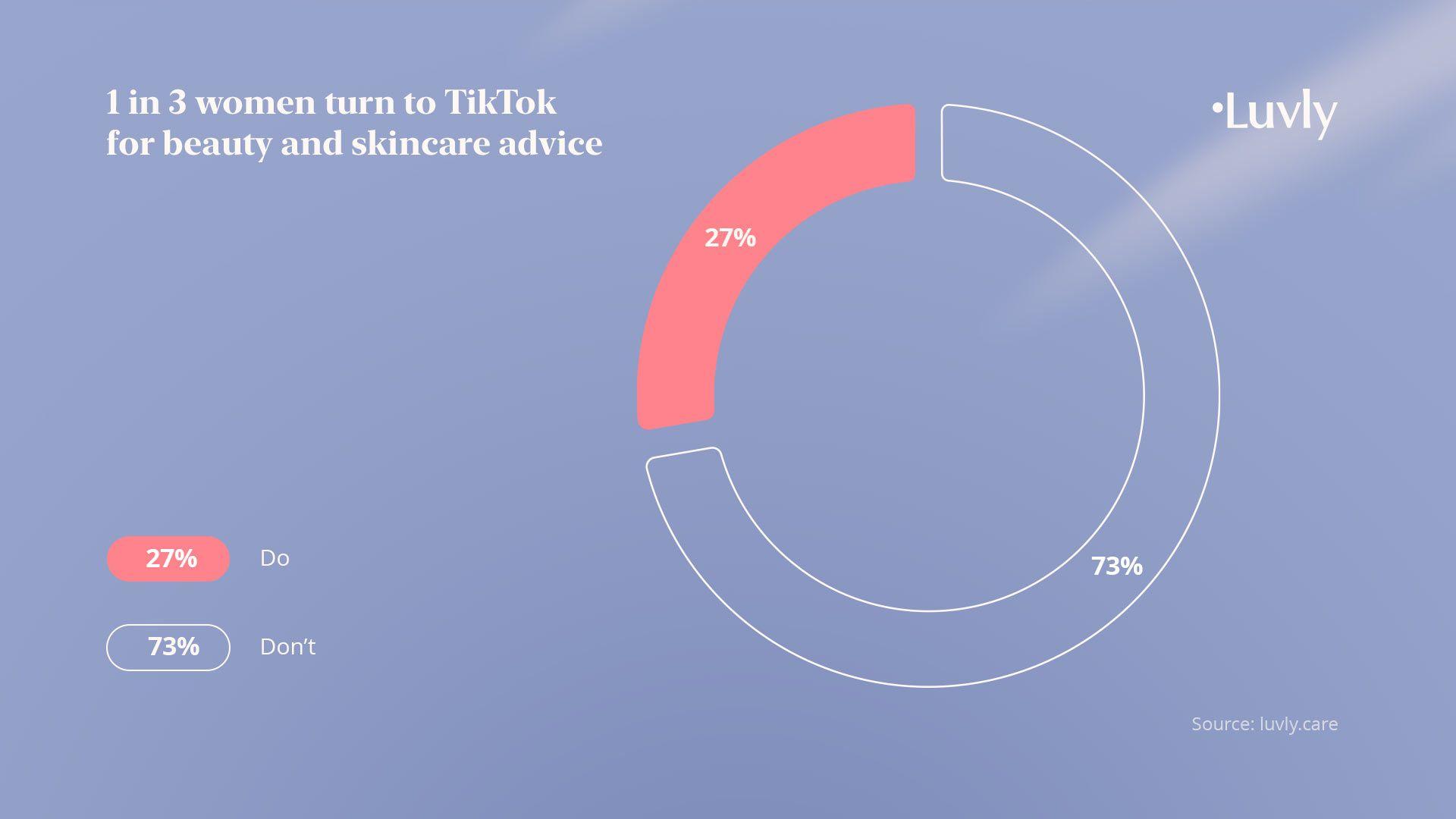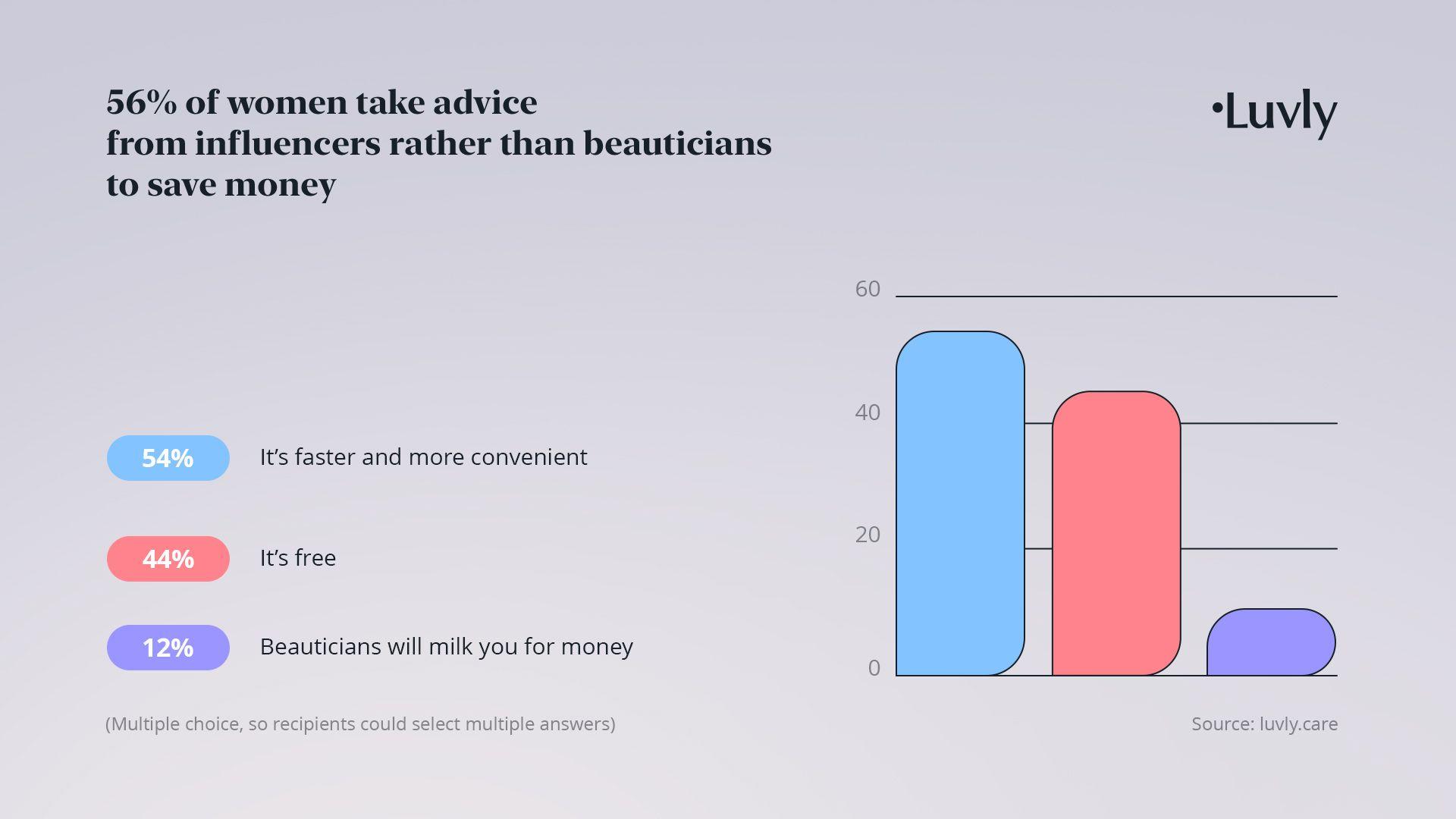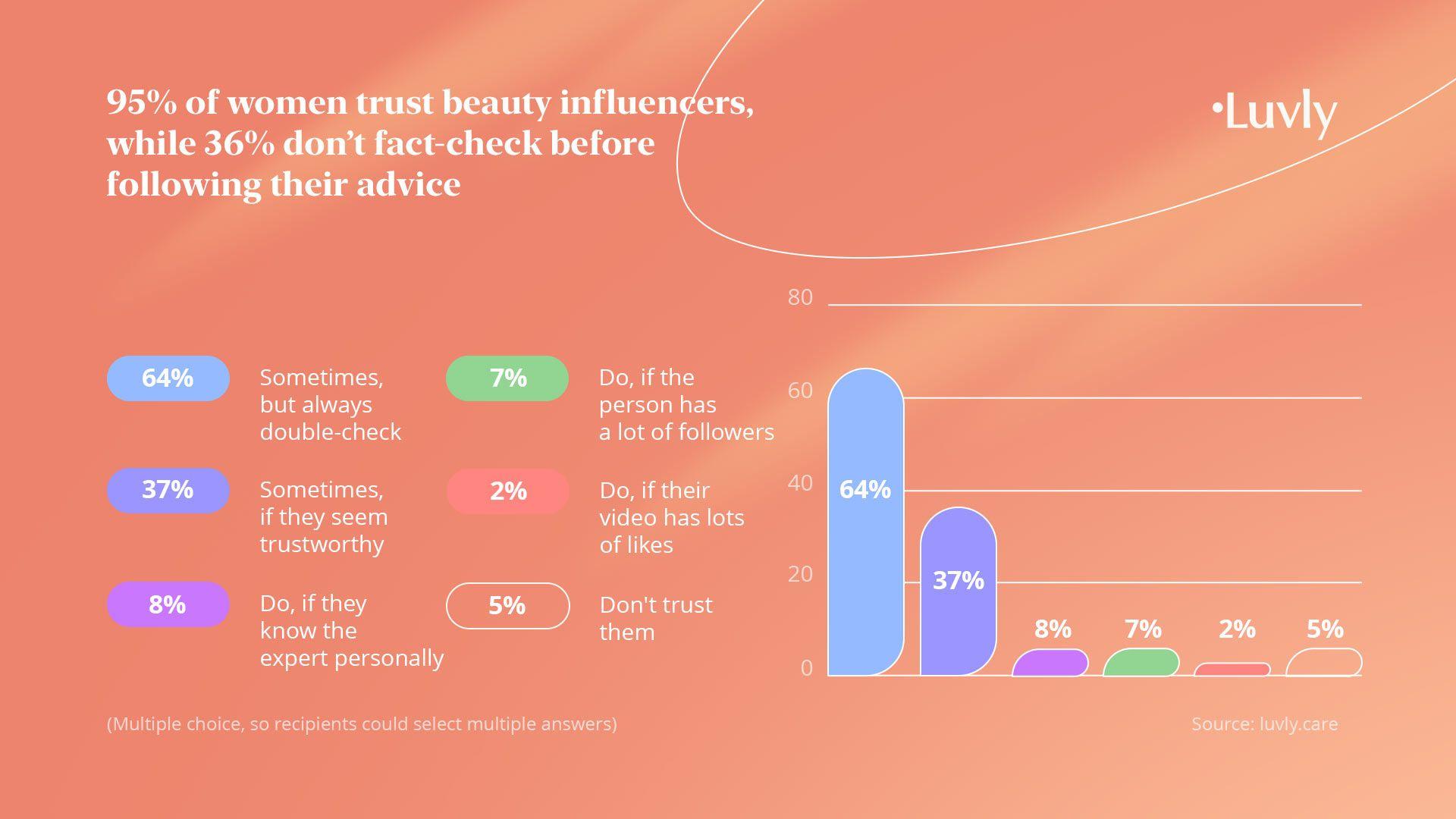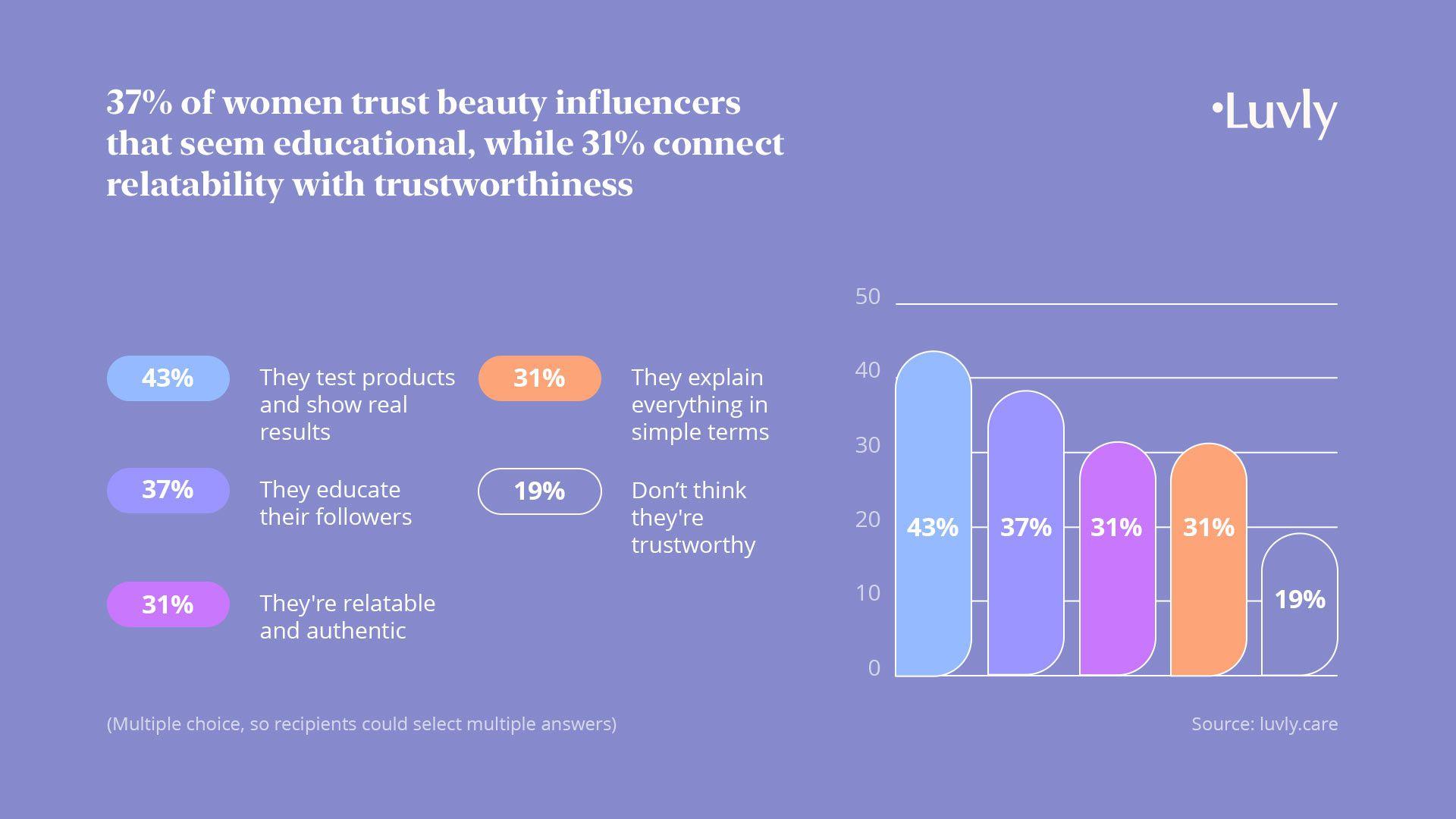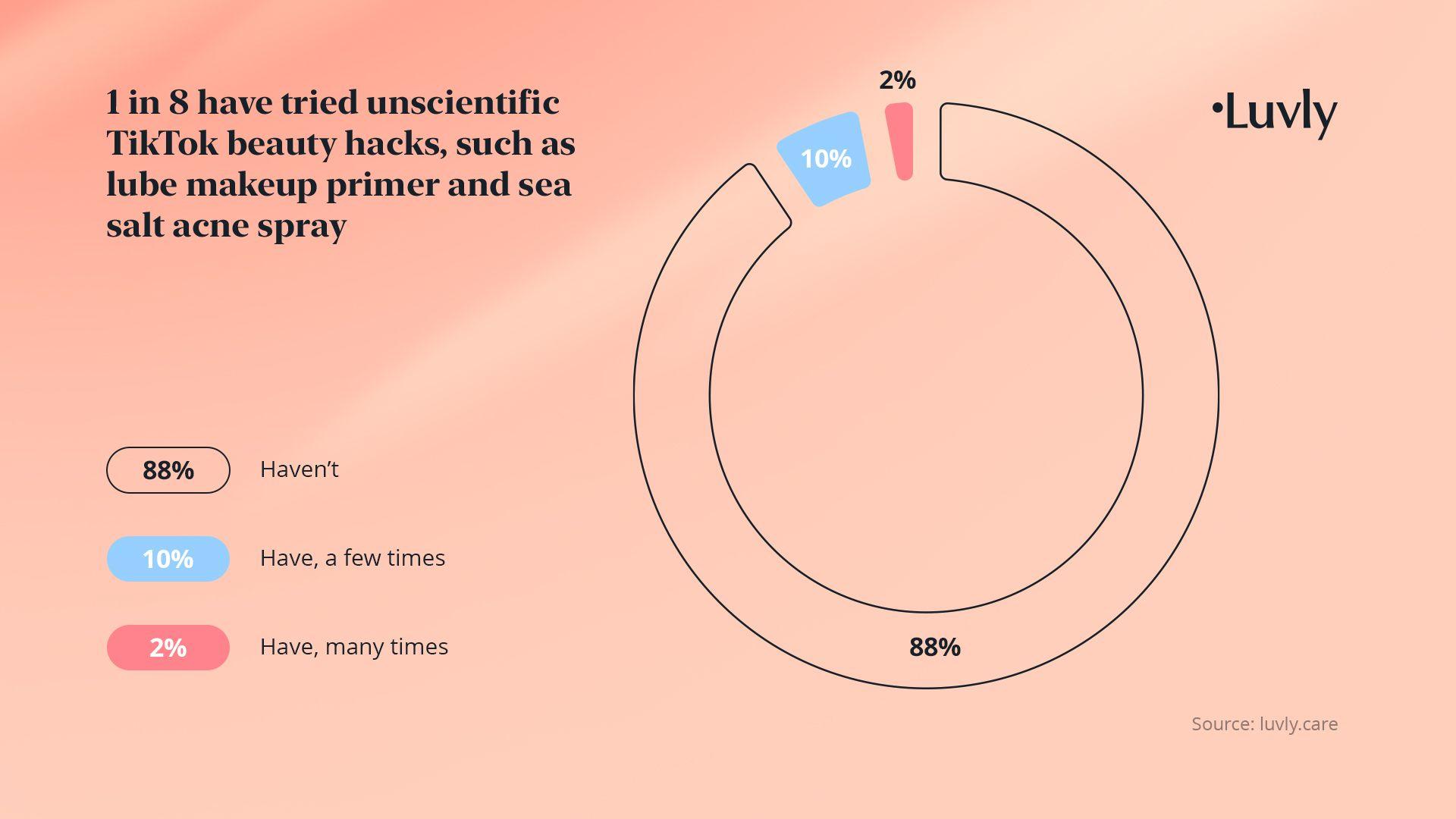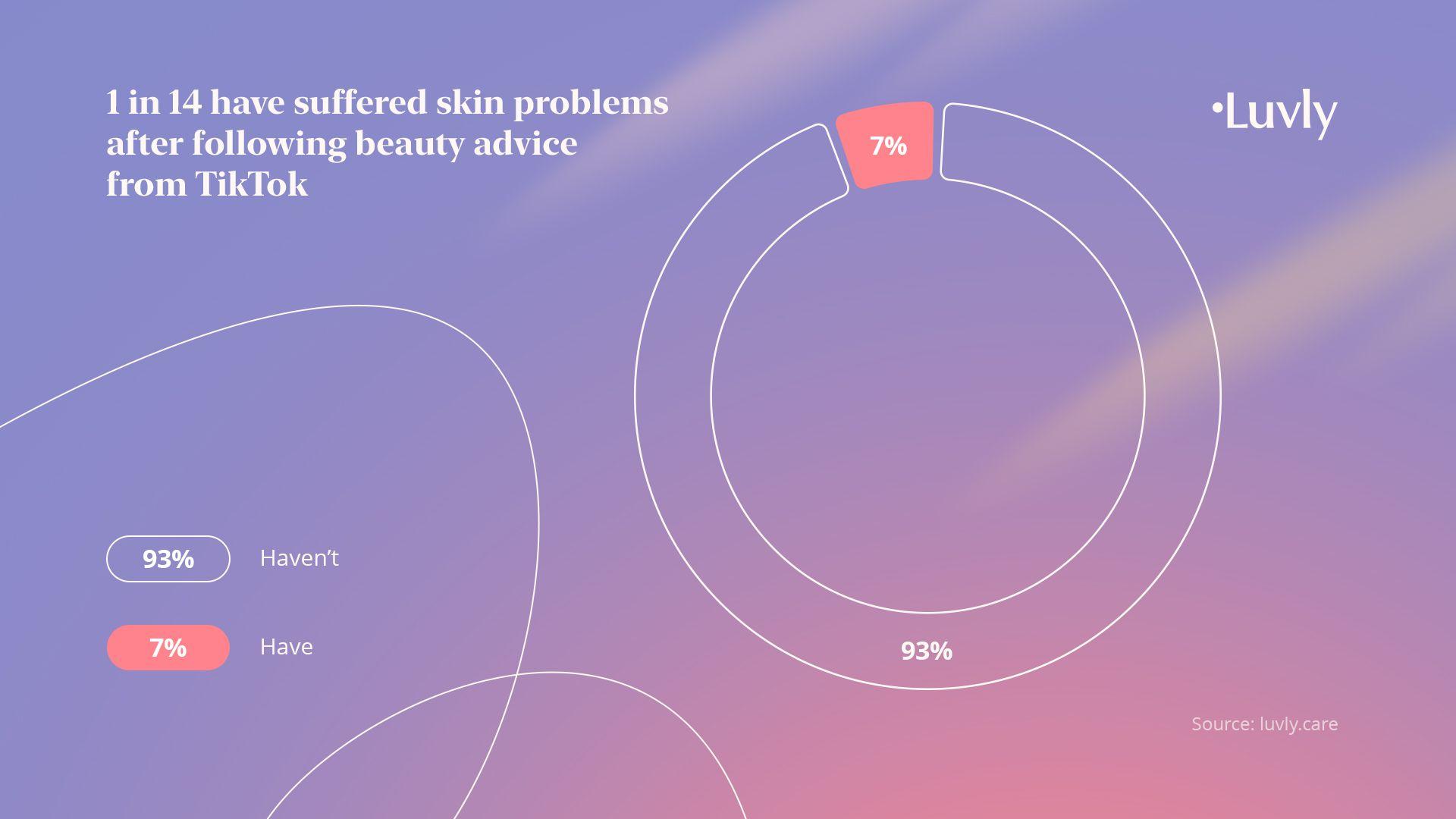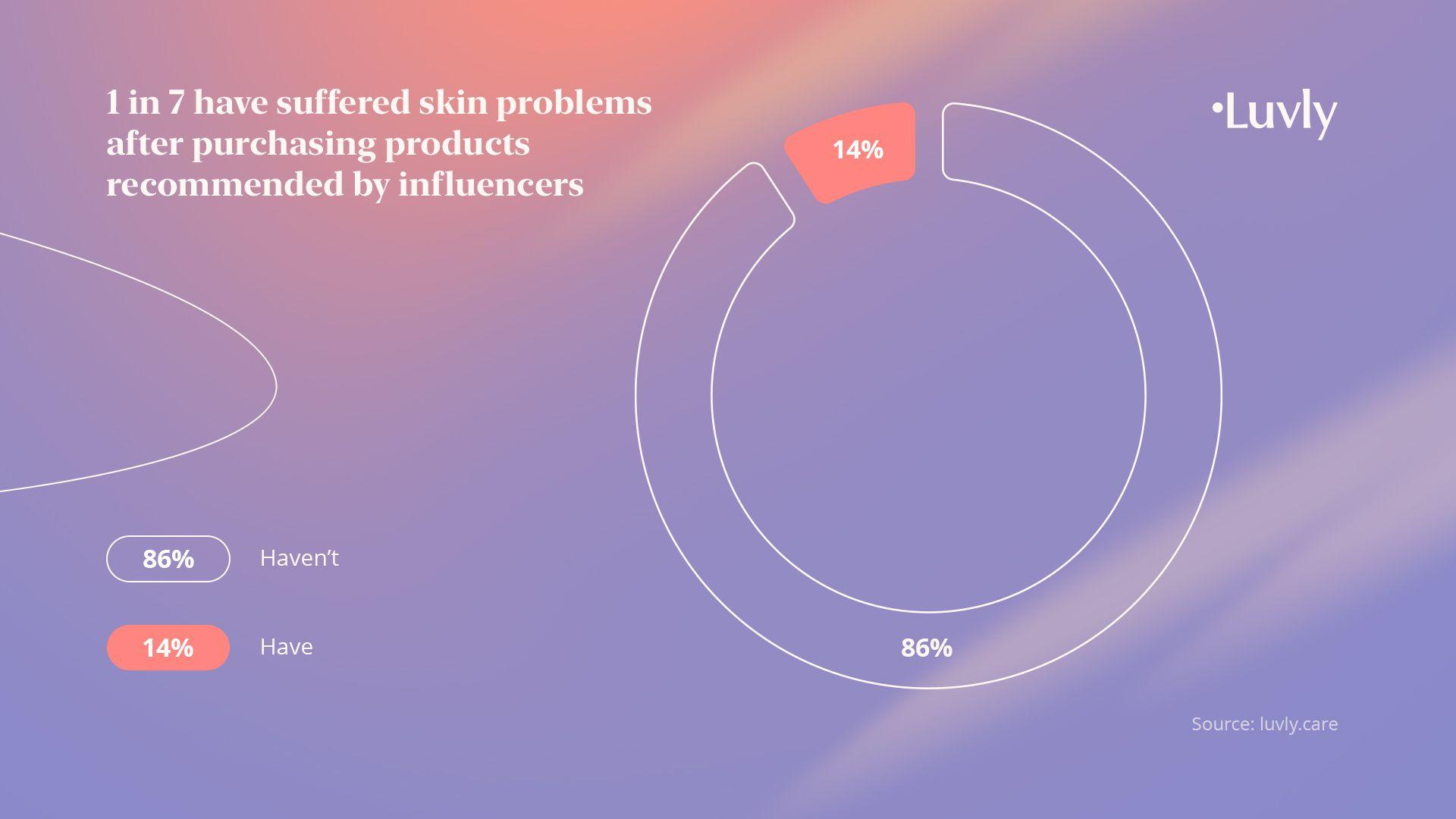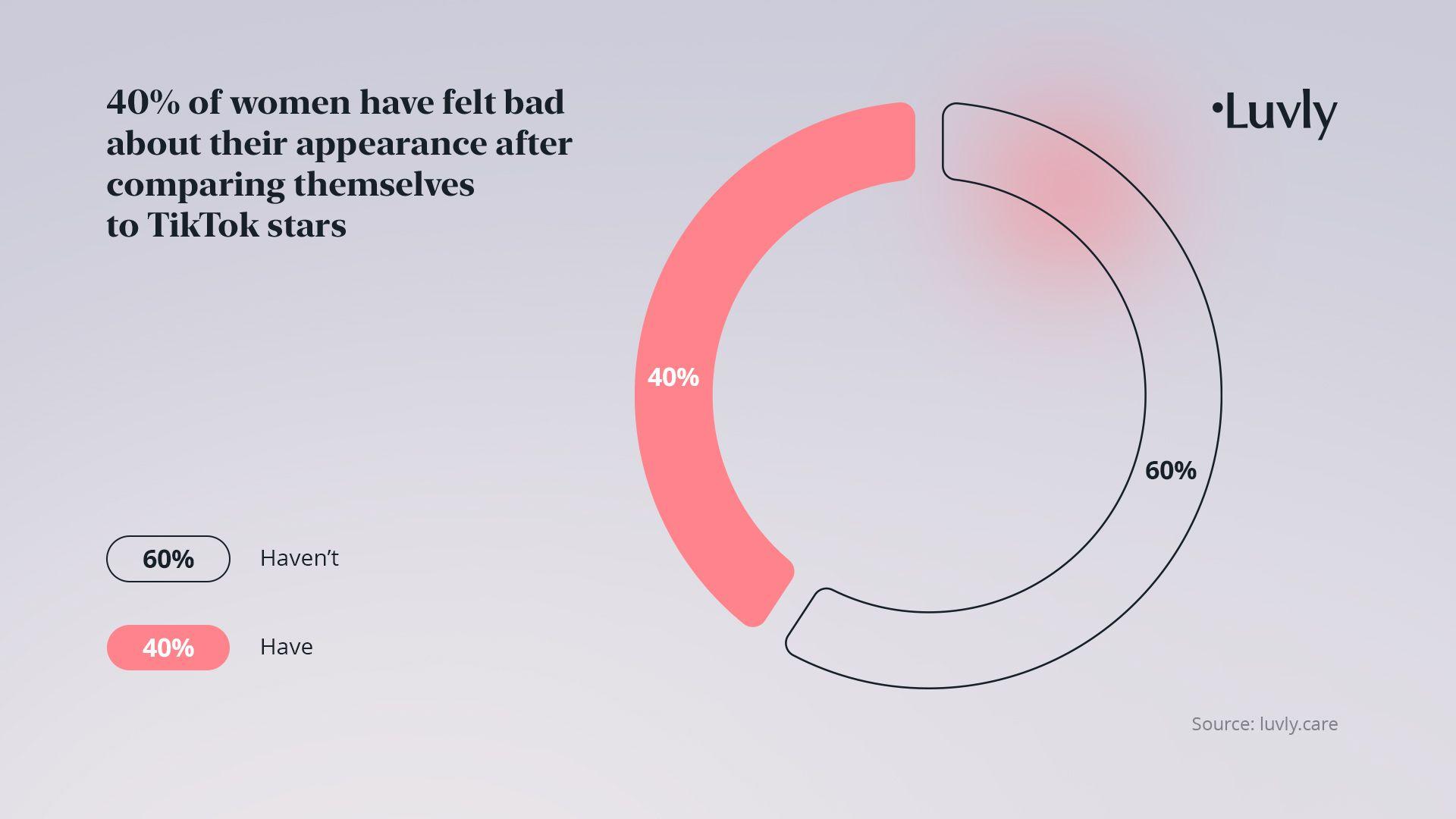Skin Care
Influenced and Inflamed: Should You Trust TikTok for Skincare Advice?
Written by Valeria ZhyvotovaUpdated on 25 Apr 2025
Skin Care
Influenced and Inflamed: Should You Trust TikTok for Skincare Advice?
Written by Valeria Zhyvotova.Updated at 25 Apr 2025
Key findings:
- Some 17% of women rely on influencers as their main source of beauty advice. In fact, 36% blindly trust them without fact-checking the information they provide.
- While 54% say they seek advice from influencers because it’s quicker and more convenient, 56% do so as a way to save money on beautician and dermatologist appointments.
- As a result, 1 in 14 women have developed skin problems after following advice from a TikTok star, while 1 in 7 have suffered skin irritation after purchasing a product recommended to them on social media.
Scrolling for skincare advice
When you notice a skin problem arising, who do you ask for advice? Some 36% of women turn to a professional — qualified doctors with years of training and experience in treating skincare issues. Or, as 17% of women do, you could always seek help from a skinfluencer who has no medical background and who is probably getting paid by brands to convince you to buy their products, whether good, bad, or outright dangerous.
For 27% of women, when it comes to skincare and beauty advice, their social platform of choice is TikTok. It’s so popular that the #skincare hashtag has amassed over 18 million posts. That’s no surprise, given the sheer amount of seemingly helpful content TikTok has to offer. Whether you’re looking for product inspiration or miracle routines, TikTok will have more than a few influencers willing to sell you something.
But why do women put so much faith in strangers on the internet? While for 54% it’s because it’s quicker and easier, 56% turn to influencers for financial reasons. Taking care of your skin isn’t cheap —12% of women feel beauticians are simply out to make a buck rather than offer good advice, while scheduling an appointment with a dermatologist will set you back by over $200 on average. But whereas much of social media’s advice is a recipe for disaster, you’re paying for personalized guidance and the perfect serum for your skin.
Sorting miracle cures from misinformation
Some 95% of women say they trust beauty influencers, with 37% choosing to believe them if they seem trustworthy and 9% if they have a lot of likes or followers. Seeking help from social media isn’t in itself a skincare sin. The problem is that 36% of women coat their skin with potentially harmful ingredients without checking whether the videos they watch are scientifically-backed or simply misinformation.
Often, a white lab coat and a confident tone of voice are enough to convince us that an influencer can be trusted. Some 43% say they trust beauty influencers that test products and show real results, while 37% blindly believe educational content. But for 31% of people, influencers don’t even need to seem particularly well-informed — they just need to be relatable and authentic to earn a like.
If you’re not fact-checking the influencers you follow, there’s a high chance you will pick up bad habits and follow harmful trends. Some 12% of women have tried an unscientific TikTok beauty trend, such as lube makeup primer or sea salt acne spray, at least once. Yet, rather than a spotless and glowing complexion, the most likely result is pimples and rashes.
Free advice (and a face full of acne)
Weird trends aside, even the seemingly harmless skincare information available on social media can seriously irritate your skin with 7% of women having suffered problems after taking advice from TikTok. The problem is, everyone’s skin is different and while a product may work flawlessly for many, its ingredients might not agree with you.
If your favorite social media star starts pushing a new cosmetic, you should thoroughly check its ingredients list before you reach for your credit card, given 14% of women have suffered skin problems after purchasing influencer-recommended products. Remember, chances are they’re being paid, so don’t take their glowing review at face value. If it contains harsh chemicals such as sulfates, parabens, phthalates, formaldehydes, it’s best to give it a miss unless you want your skin to suffer.
Even if following social media’s bad advice doesn’t lead to a breakout, chances are it will leave you feeling bad. Some 40% of women have felt down about their appearance after comparing themselves to TikTok’s biggest names. But no amount of views and followers can make us invincible to acne and irritation. Behind the filter, they’re normal people suffering from the same skincare struggles we all do.
To get your skin looking its best, you need scientifically-backed advice, products perfectly suited to you, and to cut yourself some slack when a pimple inevitably pops up. We all get them from time to time, so don’t go scrolling for a miracle cure.
Methodology: To create this study, Luvly surveyed 2,000 women aged over 18 years old with no focus on particular geographies, ethnicities, or social backgrounds.

